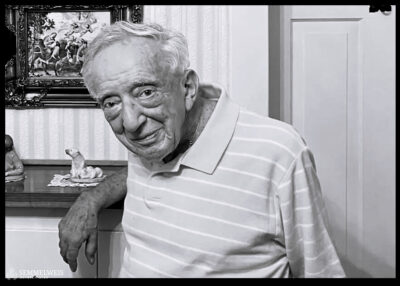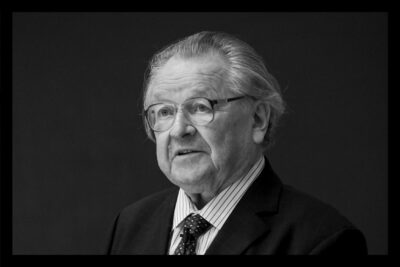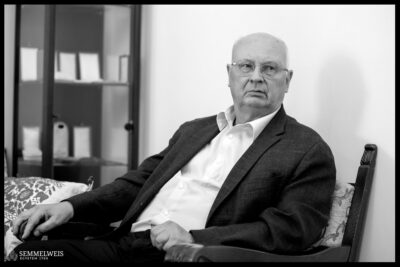Obituary
 Dr. Péter Forbáth was born in Debrecen in 1925 and began his medical studies in his hometown in 1943. In the third and fourth years of medical school, he attended the University of Târgu Mureş in Romania, and then graduated from the then Budapest University of Medicine in 1949. In the same year, he started his pediatric practice in Budapest at the then 2nd Pediatric Center, headed by Géza Petényi, and became interested in cardiology and cardiac catheterization. In 1949, he was part of the team that performed cardiac catheterization and pediatric cardiac surgery for the first time behind the Iron Curtain. His mentor at the time was Renée Fonó, a Croatian-born cardiologist who had founded the cardiology department, and with whom he remained close friends.
Dr. Péter Forbáth was born in Debrecen in 1925 and began his medical studies in his hometown in 1943. In the third and fourth years of medical school, he attended the University of Târgu Mureş in Romania, and then graduated from the then Budapest University of Medicine in 1949. In the same year, he started his pediatric practice in Budapest at the then 2nd Pediatric Center, headed by Géza Petényi, and became interested in cardiology and cardiac catheterization. In 1949, he was part of the team that performed cardiac catheterization and pediatric cardiac surgery for the first time behind the Iron Curtain. His mentor at the time was Renée Fonó, a Croatian-born cardiologist who had founded the cardiology department, and with whom he remained close friends.
After the Hungarian Revolution of 1956, he emigrated to Canada and started working at St. Michael’s Hospital in Toronto, where cardiac catheterization was not yet performed. Despite his young age and recent immigrant status, Dr. Péter Forbáth was asked to organize and head the cardiology department and the invasive cardiac laboratory. In the meantime, he maintained a pediatric practice at St. Joseph’s Hospital, where he served as head of the pediatrics department and founder of the Just for Kids Clinic. He later became Professor of Cardiology at the University of Toronto.
He supported cardiology in Hungary from abroad: he helped to bring the Cardiopulmonary Bypass (CPB) to Hungary, and it was thanks to his support that Hungarian doctors were able to participate in internships at St. Michael’s Hospital. In 1973 he came to Budapest with an entire team to introduce Hungarian colleagues to coronary artery bypass surgery.
Dr. Péter Forbáth practiced both specialties in Toronto with great success for decades, until the age of 80. In addition, for more than 30 years, he travelled regularly to Timmins in northeastern Ontario, Canada, to treat patients in need because, as he said, “There was no cardiologist there, and there was a need for it.”
From 2001 to 2003, he served as president of the Hungarian Medical Association of America (HMAA). In this position, but also as a respected doctor and university professor in Canada, as a private individual or simply as a Hungarian, he always supported Hungarian medical students, young doctors and researchers, and treated patients in the Hungarian community in Toronto selflessly. Until recently, he had helped many staff members of Semmelweis University to build their professional and academic careers. As president and then a life member of the HMAA, his contribution to the establishment and maintenance of the fellowship program in the USA for our medical students by the Dent Neurologic Institute in Buffalo proved extremely valuable.
Over the years he became one of the best-known Hungarian doctors, while also being a culinary artist and art collector as a hobby. He is credited with the discovery of Mihály Munkácsy’s painting Christ before Pilate, which was thought to be lost, and thus contributed to the promotion and dissemination of Hungarian culture abroad. The work, which he also helped to bring back to Hungary, was exhibited in the Déri Museum in Debrecen as part of the Munkácsy trilogy. In 1995, the Government of Hungary presented him with the Pro Cultura Hungarica award for his services. In 2017, in recognition of his work for the Hungarian community in Canada and his selfless activities as a physician, pediatrician, cardiologist, and president of the HMAA, he was awarded the Middle Cross of the Hungarian Order of Merit by the President of the Republic. In 2019, he received his jubilee honorary “ruby” degree as an alumnus of Semmelweis University.
He practiced medicine until he was over 90 and remained active even after that, among other things by translating ancient Greek manuscripts into English, thus supporting the research done by his friend, a history professor. He remained intellectually active and kept his gentle sense of humor to the very end of his life. Dr. Péter Forbáth was a classic polymathic physician with a broad European education, one of the last of his generation, and one whose knowledge and humanism won him the love and respect not only of his patients and colleagues, but of everyone with whom he came into contact. Looking back on his life, he once said in a statement: “I was accepted everywhere, and I never wanted to be more than I could be. It was a divine grace that all this could happen to me.”
His passing is a great loss to us. His spirit will be preserved and carried forward.
Dr. Marcel Pop, Directorate of International Relations
Dr. Sándor Hollós, Department of Oxiology and Emergency Care
Translation: Dr. Balázs Csizmadia


